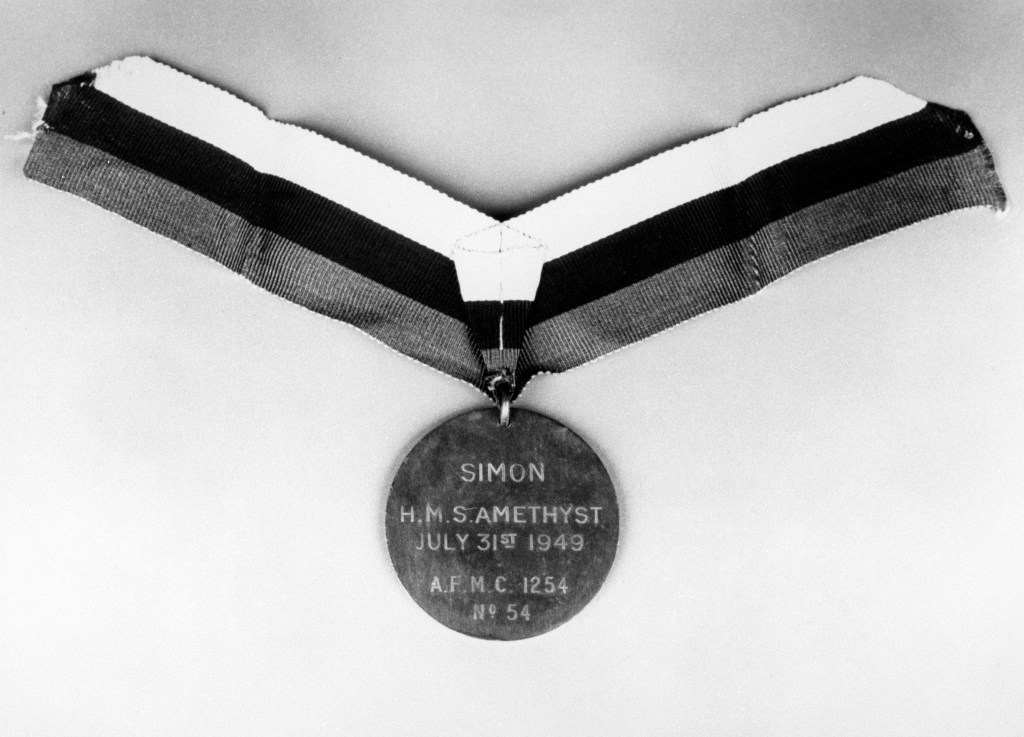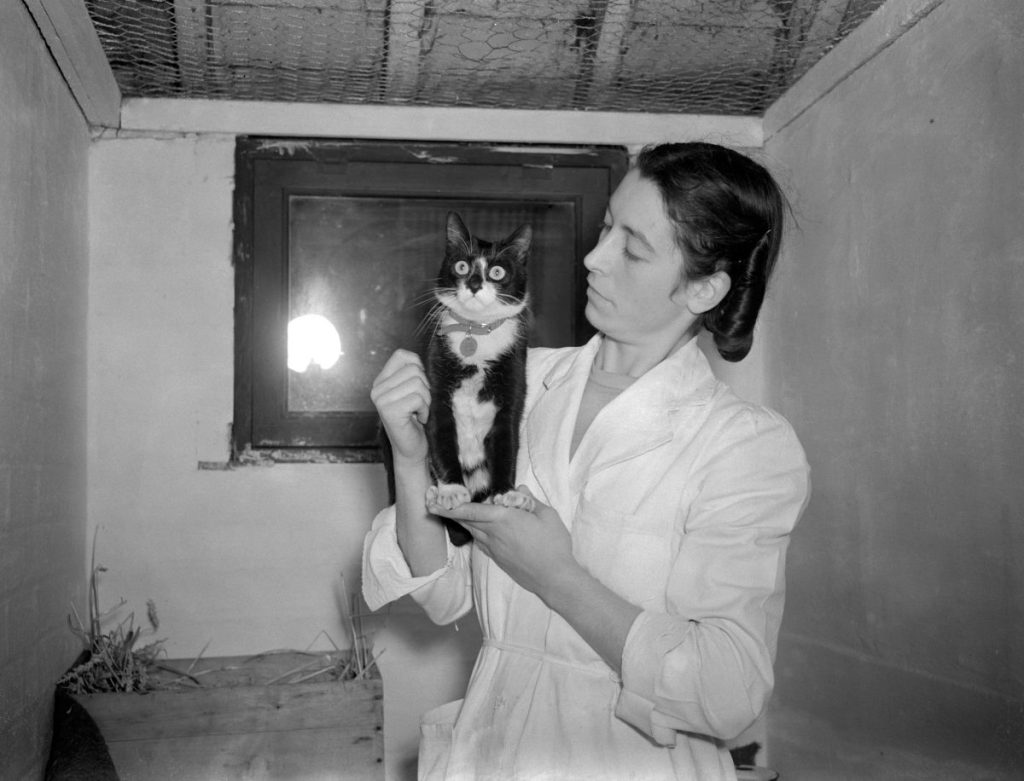Cats have been brought on ships for various purposes throughout history, the most common one being to catch mice and rats. One such heroic cat was Simon, who famously guarded his soldiers aboard the HMS Amethyst, a guard ship deployed to protect the British Embassy in Nanjing, China, amidst the Chinese Civil War in 1949.
The fearless feline was responsible for killing off rats and saving the sailors’ food supplies whilst the ship was under attack from the Chinese forces during the devastating Yangtze Incident, according to Owlcation. Simon received the prestigious Dickin Medal award for his heroics, a feat no other cat has achieved since.
The cat’s discovery in Hong Kong
In 1948, George Hickinbottom, a 17-year-old seaman, found Simon roaming around the dockyards of Hong Kong. At the time, the black-and-white cat was around a year old and was quite skinny. Hickinbottom later managed to smuggle the cat aboard the ship.
The feline got along well with the other officers, especially Captain Ian Griffiths, with whom Simon developed a special bond. He was known to leave dead rats at Griffiths’ feet as a gift.
Griffith was later transferred, following which Captain Bernard Skinner took over. Like his predecessor, Skinner was immediately won over by Simon.
The Yangtze Incident
However, tough days were ahead as Skinner’s first mission was to travel up the Yangtze River to Nanjing from Shanghai and replace another ship, HMS Consort, which was guarding British nationals there in the event of an ambush from the Chinese army.
On April 20, 1949, as the ship headed toward Nanjing, the Chinese army opened fire, wounding and killing many soldiers, including Skinner. The ship was hit over 50 times and ultimately ran aground. Later, three ships were sent to assist HMS Amethyst, but they couldn’t deal with the Chinese army’s sustained attack. Meanwhile, the Chinese and British governments began negotiations.
Simon was severely injured in the attack and was taken to the medical bay for his wounds to be treated. The cat suffered serious burns and had four pieces of shrapnel removed from his body.
Simon’s miraculous recovery after the attack
Although doctors were not hopeful about his survival, Simon eventually managed to recover. Moreover, he was soon back on duty.
Lieutenant Commander John Kerans took over following Skinner’s death. However, Kerans wasn’t too fond of cats and did not allow Simon to enter his cabin.
Meanwhile, rats started eating up the Royal Navy’s food supplies in the cat’s absence and were scurrying all around the ship. Upon returning to duty, Simon managed to get rid of the rodents. In one instance, he left a dead rat at Kerans’ feet, impressing him. The feline’s lively presence was also a constant source of comfort to wounded sailors.
Simon, however, was yet to face his biggest enemy. A large rat known as “Mao Tse-tung” had been destroying the food supplies for a while. Concerned about the cat’s health, the sailors tried to trap the rat themselves but failed to do so. Simon ultimately managed to kill the scavenger, following which he received a promotion.
Whilst the governments continued to negotiate, the ship’s supplies and fuel were running low. Kerans then made the bold decision to attempt an escape out of the river. Despite further attack from the Chinese army, the ship ultimately made it to the port on July 31, 1949, after a devastating 3-month standoff.
Simon’s arrival in England and subsequent death

Simon became an instant celebrity upon his arrival in Plymouth, England, as he received a special welcome. The cat was also bestowed thousands of gifts and letters. However, the government’s quarantine regulations meant he couldn’t go ashore.
Unfortunately, Simon was infected with a virus while in quarantine and subsequently passed away on Nov. 28, 1949. He was posthumously awarded the Dickin Medal by the People’s Dispensary for Sick Animals (PDSA), also known as the “Animal Victoria Cross,” and a Blue Cross medal.
The cat’s death triggered a widespread outpouring of grief from thousands worldwide. Time Magazine paid a memorable tribute to the feline on its obituary page.
According to the PDSA, throughout the Yangtze Incident, Simon’s “behaviour was of the highest order, although the blast was capable of making a hole over a foot in diameter in a steel plate.”
“Despite shrapnel wounds to his legs and burns to his back and face, Simon was all that stood between the rats and the crew’s essential supplies.”
Simon the cat was a lifesaver, and he deserves to be remembered that way.




